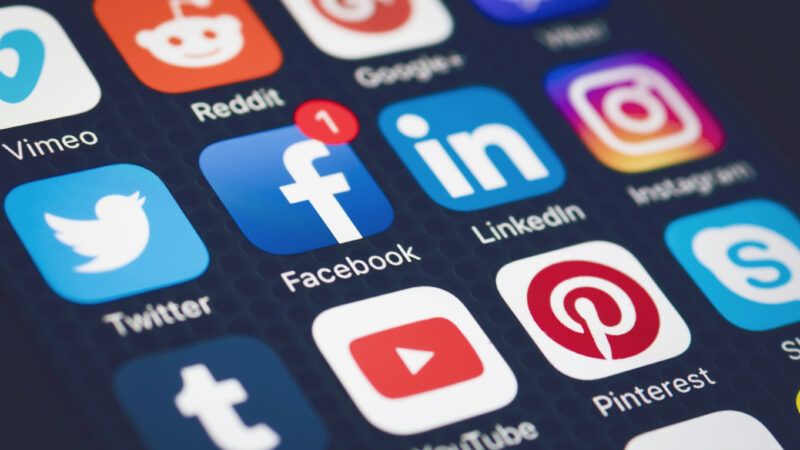A New Federal Bill Could Require You To Show Facebook and Twitter Your Government ID
The age verification proposal is a disaster for both children and adults.

Rep. Chris Stewart (R–Utah) last week introduced a bill that would require social media platforms to verify the age of every registered user and prohibit registering children younger than 16. But the bill would serve neither the interests of young teenagers nor adults.
H.R. 821, which Stuart introduced in the House Committee on Energy and Commerce, requires platforms to verify age using government identification, such as a birth certificate or a driver's license. The bill would apply to any platform that allows users to make accounts for posting, sharing, or viewing user-generated content (UGC). In addition, to be covered, a platform's primary purpose must be the dissemination of UGC.
This spacious definition of "social media" could be interpreted by regulators to include messaging, video, and email services, none of which are explicitly excluded from the statute's provisions. And unlike many recent proposals to regulate online life, the bill does not establish a market cap threshold to spare smaller platforms from having to collect sensitive information from users—which would be costly to protect and would threaten users' privacy in the event of a data leak.
"This [bill] is protecting [children] from the environment itself and protecting them from the overall immersion that just swallows them up and begins to destroy their value or sense of self-worth," Stewart told Fox News. To CNN's Jake Tapper, the congressman labeled TikTok "emotional heroin."
Stewart has cited data from the Centers for Disease Control and Prevention on teen mental health to make his case, but the 2021 report he frequently cites suggests that online socialization improved many teens' mental health during the pandemic: "[S]tudents who were virtually connected to others during the pandemic had a lower prevalence of poor mental health during the pandemic (35.5% versus 42.0%) and during the past 30 days (28.7% versus 36.8%), of persistent feelings of sadness or hopelessness (41.9% versus 51.7%), of having seriously considered attempting suicide (18.4 versus 24.9%), and of having attempted suicide (8.0% versus 12.2%) compared with those who were not virtually connected to others during the pandemic."
Predicating sweeping regulation in response to a pandemic-driven teenage mental health crisis is imprudent, particularly since that crisis seems to have been at least somewhat mitigated by online social interaction.
The bill would further violate the liberties of adults.
"Mandating age verification means that every user will be forced to hand over identifying information before accessing lawful content, or speaking, on social media—a chilling proposition that courts will strike down as easily as they have in the past," Ari Cohn, free speech counsel at TechFreedom, tells Reason. "For someone so concerned about government targeting people with dissenting viewpoints, it's curious that Stewart proposes eliminating anonymous speech and effectively creating a database of dissenters."
Stewart's office did not respond to Reason's inquiry on the potential harms of curtailing online anonymity.
